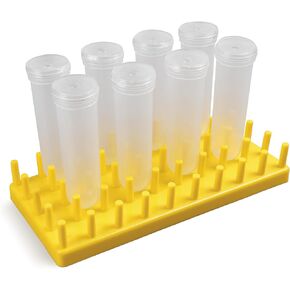- Shopping, made easy.
- /
- Get the app!
Kaolin (white clay) is a source of silicon, sodium, manganese, potassium, iron, calcium, magnesium, phosphorus and other minerals. The most important element of clay for humans is silicon. In food grade kaolin clay its content is at least 45%. Under the influence of the enzyme silicases, its compounds are absorbed in the duodenum and small intestine and are delivered by the bloodstream to all organs. The maximum concentration of silicon is found in the skin, lungs, spleen, tendons and muscles. This trace element is involved in metabolic processes; in the generation of proteins, fats, carbohydrates, hormones; responsible for the elasticity of blood vessels, the condition of hair, skin and nails; participates in the formation of bone, cartilage, muscle tissue; necessary for the assimilation of trace elements (calcium, phosphorus, sodium, etc.). The main source is plant food and water. The maximum daily dose for humans is 20 mg of silicon, the minimum is 2 mg. Its deficiency leads to cardiovascular diseases, metabolic disorders, psycho-emotional disorders, poor coordination, increased fatigue, headaches and meteosensitivity, and a general decrease in immunity. Calcium, which is also contained in food clay, is a building material for bone and muscle tissue, is involved in blood formation, transmission of nerve impulses, intracellular processes, etc. Sodium together with potassium are involved in the regulation of water-salt balance, muscle contractions (including the heart), normalization of pressure, intercellular metabolism, the gastrointestinal tract. Iron is a catalyst of metabolic respiratory processes, is a part of hemoglobin that delivers oxygen to all organs and tissues. These and other minerals are contained in food clay, which helps to compensate for their deficiency in the body. Since clay is a natural raw material, the assimilation of beneficial trace elements occurs naturally and as fully as possible.
 Real Mohair Locks. Hand Dyed Wool Fiber for Rooting, Felting, Blending, Spinning, Wallhangings and Embellishments. Blonde, 1 Ounce (28g)
KWD 8
Real Mohair Locks. Hand Dyed Wool Fiber for Rooting, Felting, Blending, Spinning, Wallhangings and Embellishments. Blonde, 1 Ounce (28g)
KWD 8
 8Pcs 50ml Large Floral Tubes with Rack Holder for Milkweed Leaf, Stem and Flower Cutting
KWD 7
8Pcs 50ml Large Floral Tubes with Rack Holder for Milkweed Leaf, Stem and Flower Cutting
KWD 7
 Basket Weave Leather Stamp Tool Stamps Stamping Carving Punches Tools Craft Leathercrafting
KWD 17.500
Basket Weave Leather Stamp Tool Stamps Stamping Carving Punches Tools Craft Leathercrafting
KWD 17.500
 -8%
Sheens Punch Prong Tool, Professional Leather Craft 2/5/10 Prong French Angled Chisel Leather Craft Tools Hole Punches Lacing Stitching Perforate(3.85mm)
KWD 5.500
-8%
Sheens Punch Prong Tool, Professional Leather Craft 2/5/10 Prong French Angled Chisel Leather Craft Tools Hole Punches Lacing Stitching Perforate(3.85mm)
KWD 5.500